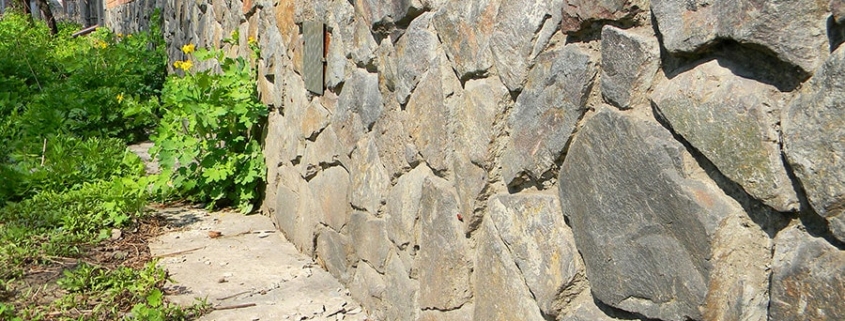Common Issues With Stone Wall Foundations
Stone wall foundations, often seen in older buildings and historic structures, are admired for their rustic charm and durability. However, like all construction materials, they are not without their issues. Understanding these common problems is crucial for maintaining the integrity and longevity of such foundations.
Water Damage and Moisture Intrusion
One of the most common issues with stone wall foundations is water damage. Stone is a porous material, which means it can absorb moisture from the ground or from rainfall. Over time, this moisture can lead to several problems:
- Freeze-Thaw Cycles: In colder climates, the absorbed moisture can freeze and expand, causing the stone to crack and deteriorate. When the ice melts, the water seeps deeper into the stone, exacerbating the damage with each freeze-thaw cycle.
- Efflorescence: This is the white, powdery substance that can appear on the surface of mortar between stones. It occurs when water carries soluble salts to the surface of the mortar, which then crystallizes and leaves a residue. Efflorescence can indicate deeper moisture problems.
- Mold and Mildew: Prolonged moisture exposure can lead to the growth of mold and mildew, which can compromise the structural integrity of the foundation and pose health risks to inhabitants.
Structural Shifting and Settlement
Stone wall foundations are particularly susceptible to settling and shifting over time. This can be due to several factors:
- Soil Movement: Changes in the soil, such as erosion, compaction, or expansion due to moisture, can cause the foundation to shift. This movement can lead to cracks in the walls and floors of the building.
- Poor Construction Practices: Many older stone foundations were built without the engineering knowledge we have today. Inadequate footings, lack of proper drainage, and insufficient mortar can all contribute to structural instability.
- Vibrations: Nearby construction, heavy traffic, or natural events like earthquakes can cause vibrations that disturb the stone foundation, leading to cracks and other forms of damage.
Inadequate Drainage
Proper drainage is crucial for the longevity of any foundation, but it is especially important for stone wall foundations. Poor drainage can lead to:
- Water Accumulation: Without adequate drainage, water can accumulate around the foundation, increasing the risk of water intrusion and damage.
- Soil Erosion: Excessive water can erode the soil supporting the foundation, causing it to settle unevenly and leading to structural issues.
- Increased Hydrostatic Pressure: Waterlogged soil exerts additional pressure on the foundation walls, which can cause bowing, cracking, and even collapse in severe cases.
Deterioration of Mortar
The mortar holding the stones together is often the weakest link in a stone wall foundations. Over time, mortar can deteriorate due to:
- Weathering: Exposure to the elements can cause mortar to crack and crumble. This process is accelerated in regions with harsh weather conditions.
- Chemical Reactions: Certain chemicals, like those found in polluted rainwater or in the soil, can react with the components of mortar, causing it to weaken and disintegrate.
- Biological Growth: Moss, lichen, and other biological growth can penetrate the mortar, causing it to break down over time.
Conclusion
Maintaining stone wall foundations requires vigilance and an understanding of the potential issues. From water damage and structural shifting to the specific challenge of crumbling pyrrhotite foundations, being proactive in identifying and addressing these problems can save significant time, effort, and expense in the long run.
Regular inspections conducted by a reputable home inspector, proper drainage, and timely repairs are essential practices for preserving the beauty and strength of these historical and architectural treasures.
At CMS Home Inspection, we have years of experience and understand the concerns regarding owning a home in Rhode Island, Massachusetts, and eastern Connecticut. Our thorough home inspections provide the tools necessary for you to understand the structure behind any potential property, as well as needed repairs. If you have any of the described issues with your stone wall foundation and want us to take a look, click here to schedule an inspection.




Leave a Reply
Want to join the discussion?Feel free to contribute!